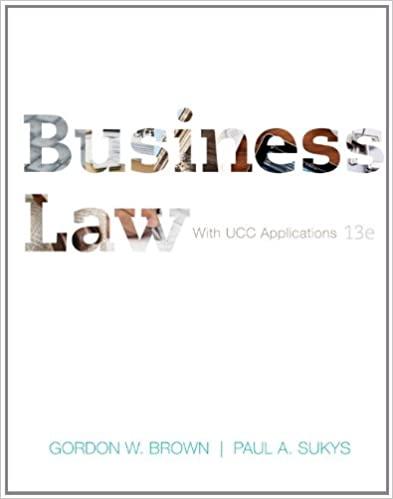William Stevenson offered to help Rayford Le- Blanc remove his truck from the mud. At first, LeBlanc
Question:
William Stevenson offered to help Rayford Le- Blanc remove his truck from the mud. At first, LeBlanc refused. However, later, when the towing company that LeBlanc had called proved to be unavailable, he accepted Stevenson’s offer of assistance.
LeBlanc then bought a towing strap from a nearby store to help in the removal of his truck from the mud. The first two attempts at removing the truck failed. On the third attempt, while LeBlanc was still in the process of connecting the straps to his truck, Stevenson, apparently without warning, pulled his vehicle forward. This movement caught LeBlanc by surprise. His hand was still wrapped up in the strap, and therefore, as Stevenson’s vehicle moved forward, LeBlanc’s hand was severely injured. LeBlanc sued Stevenson for damages related to the injuries to his hand. The jury decided that Stevenson was not at fault, and LeBlanc found himself on the losing end of the lawsuit. Accordingly, he appealed the case. The appellate court threw out the jury’s factual finding and awarded LeBlanc over $190,000 in damages.
Stevenson hollered “foul” and asked the Supreme Court of Louisiana to hear his request to have the decision reversed. The high court accepted the case. One of the central issues involved the question of whether, and under what circumstances, an appellate court can overturn decisions of fact made by a jury. Should the supreme court uphold the appellate court’s decision? What standard of review should be involved here? Explain. LeBlanc v. Stevenson, 770 So.2d 766 (Sup. Ct. LA).
Step by Step Answer:

Business Law With UCC Applications
ISBN: 9780073524955
13th Edition
Authors: Gordon Brown, Paul Sukys





